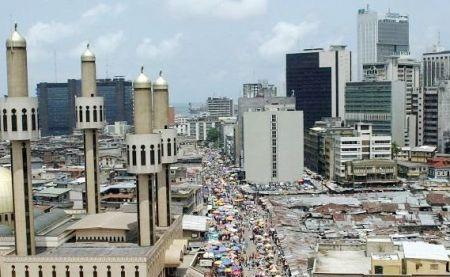
(Ecofin Agency) – Nigeria has reported a record gross domestic product growth over the past five quarters, but some challenges remain.
Nigeria’s GDP stood at N39.64 trillion ($96.3 billion) in Q2 2021, according to data from the national statistics agency. The amount is 5.01% higher than that in Q2 2020. The value-added created in H1 2021 was $194.6 billion, up 14% YoY.
The improvement was supported by the agriculture and livestock sectors, which contributed 22% and 14% to the total value-added, respectively. However, this good performance hides some structural problems.
The evolution of GDP at constant 2010 prices is lower (about 2.8%). This gap between GDP growth at market prices and constant prices is due to inflation. Indeed, several factors, including agricultural production which remains low, restrictions on imports to secure foreign exchange reserves, and the closure of borders with neighboring food-supplying countries, have led to a rise in prices, particularly for agricultural products and general trade. Agricultural value-added, which at 2010 prices was 3,541 billion naira, is now 7,553 billion naira. For some products that constitute the food base of the population, the price increase has reached 80% over the last 12 months.
The second structural challenge is that over the last three quarters, Nigeria’s GDP has declined. The figure fell from N44.23 trillion in Q4 2020 to only N39.64 trillion in Q2 this year. Also, the share of the financial sector in GDP slid to 2.8% from 3.3% in Q2 2020.
With growing inflation and difficulties in increasing the supply of goods and services in the economy, the growth of the Nigerian economy risks marginalizing more people and weighing on the country’s stability. In its inaugural report on living standards in Nigeria, the national statistics agency reported that nearly 86 million people live on less than $1.2 a day. The evolution of this scenario during the Covid-19 pandemic needs to be monitored.
Idriss Linge











Comments